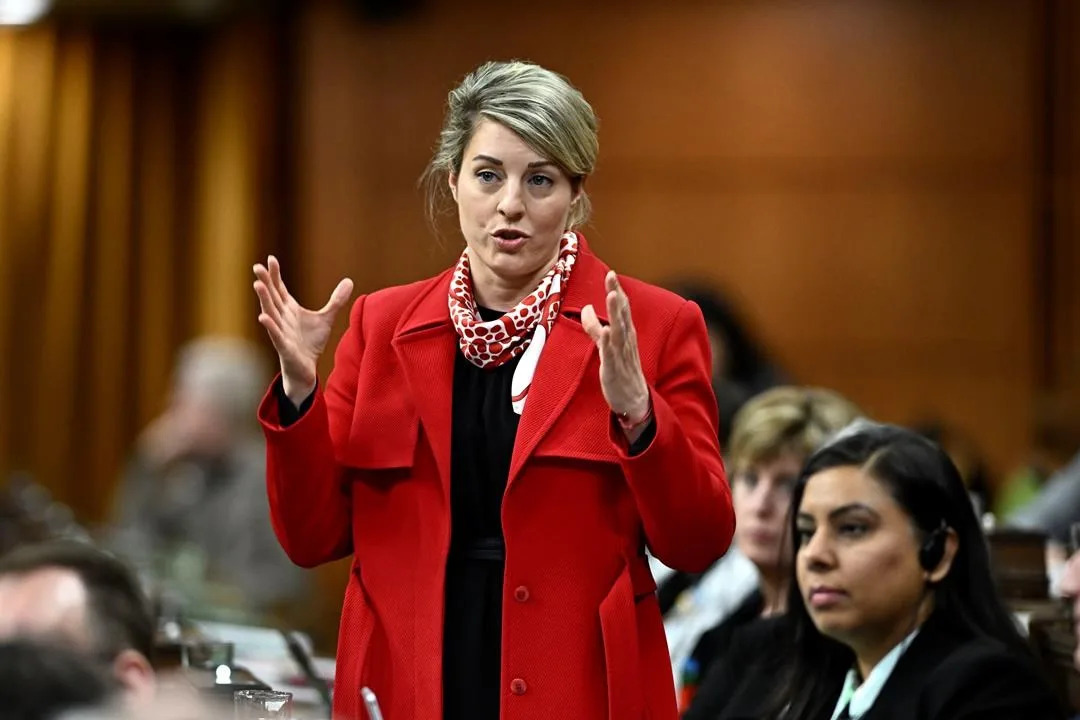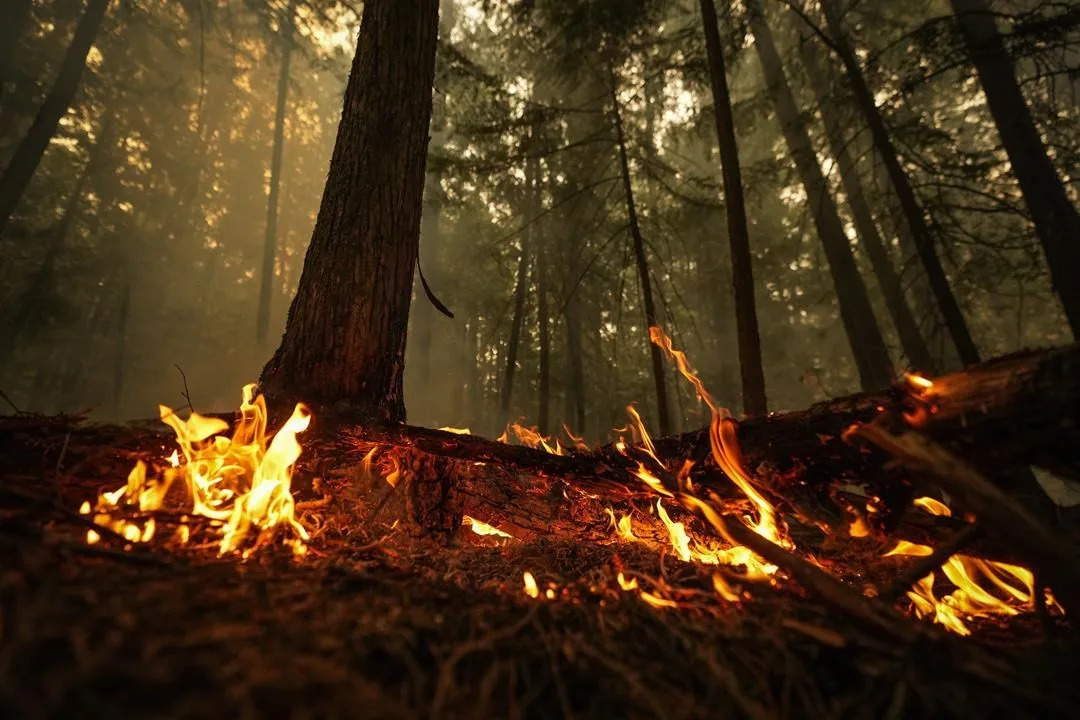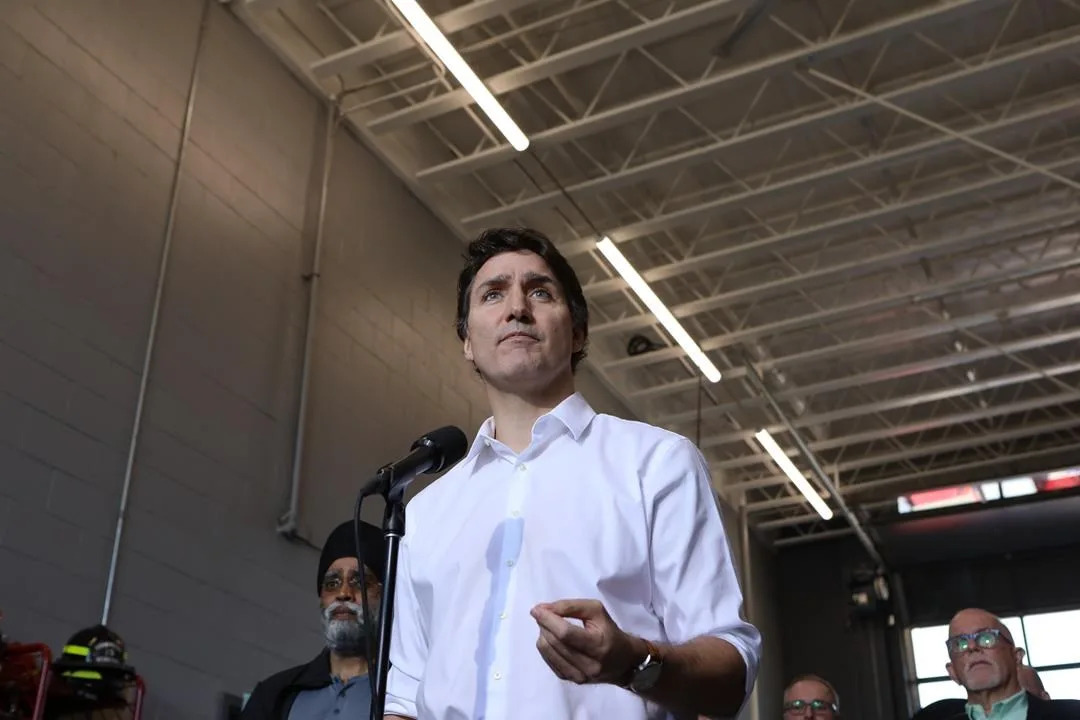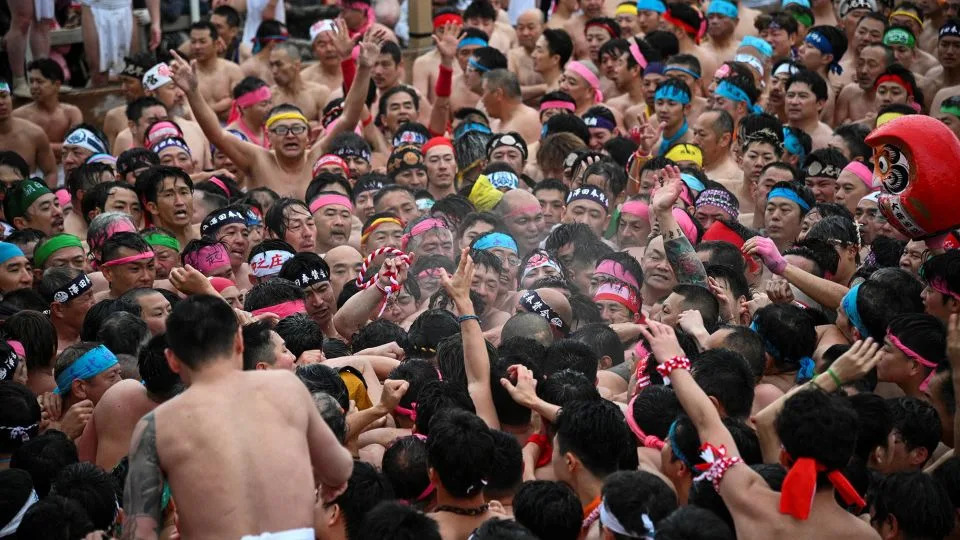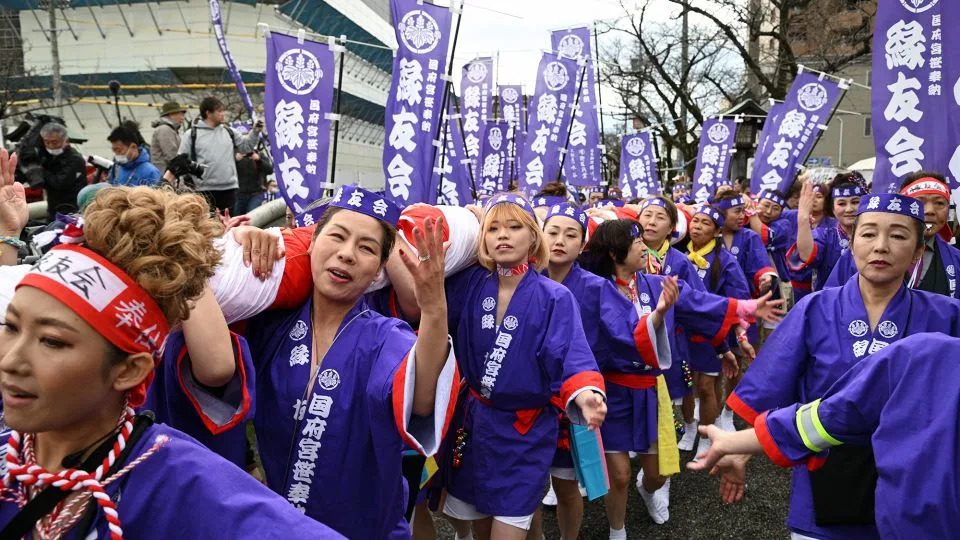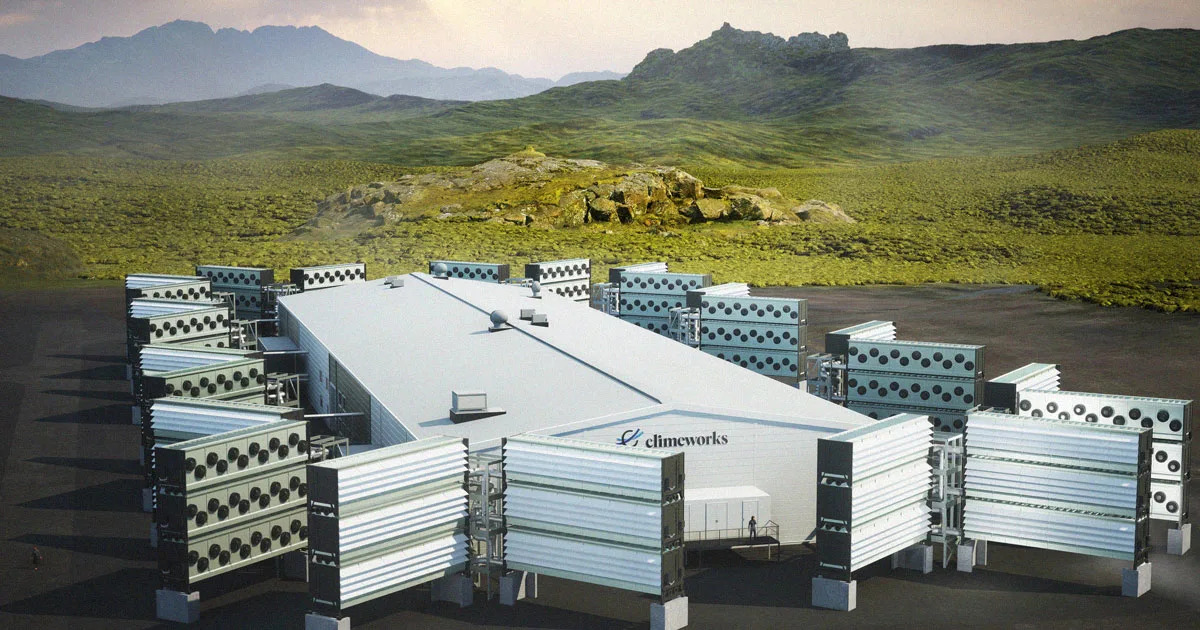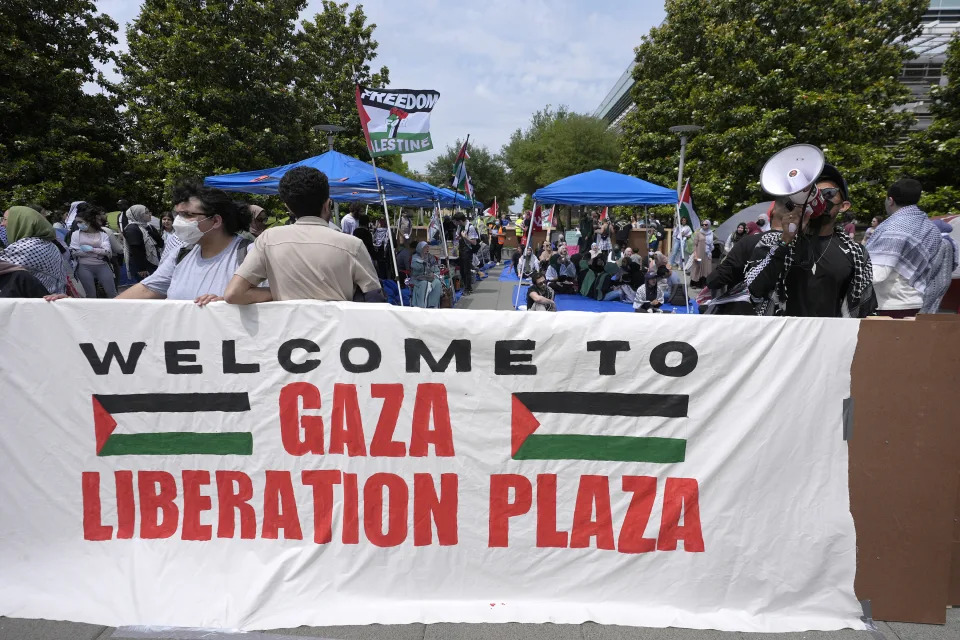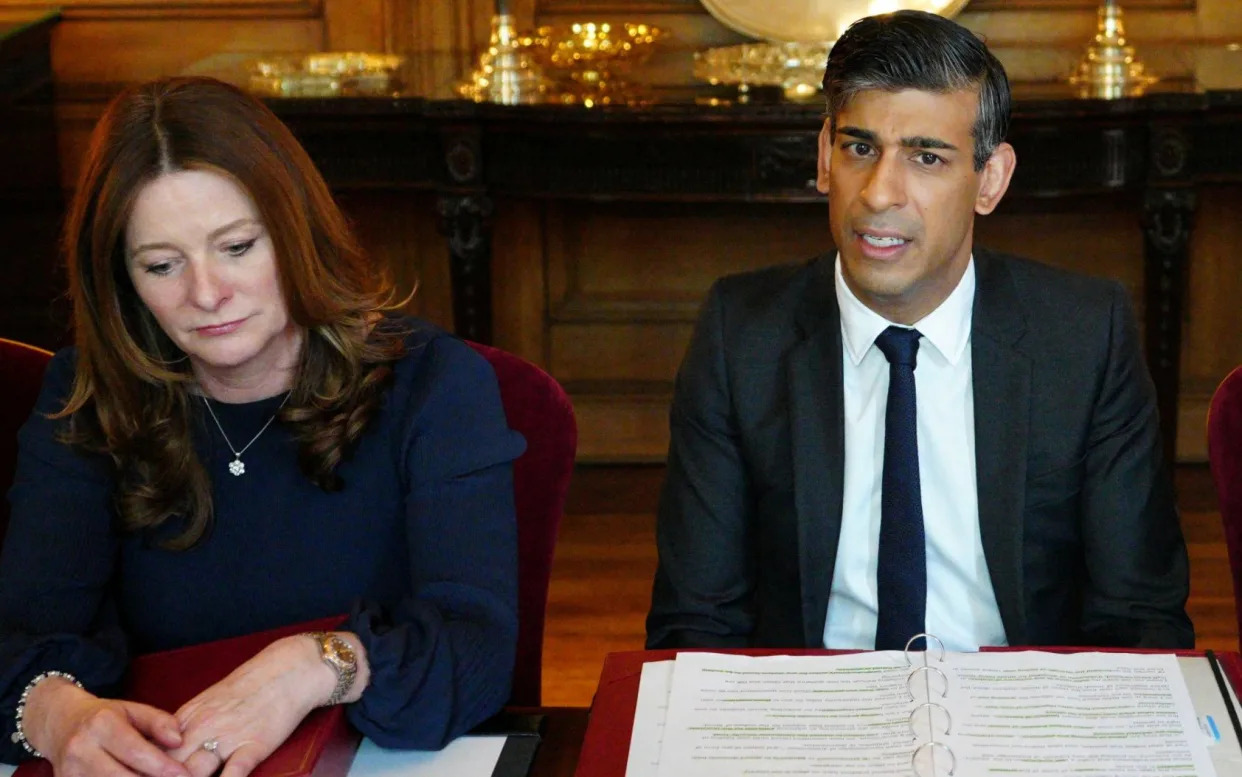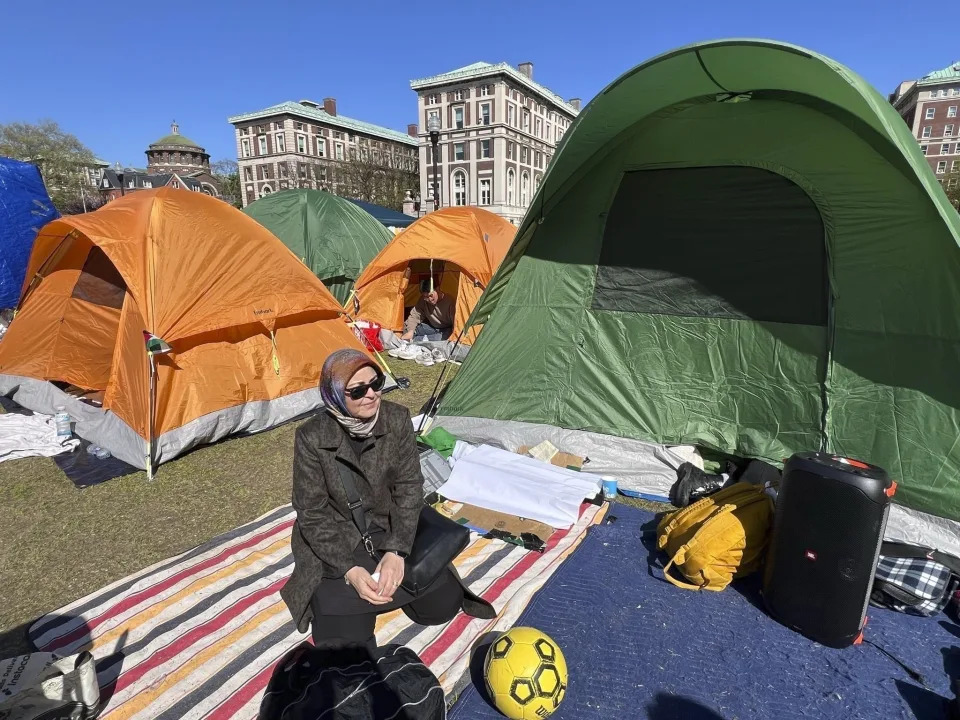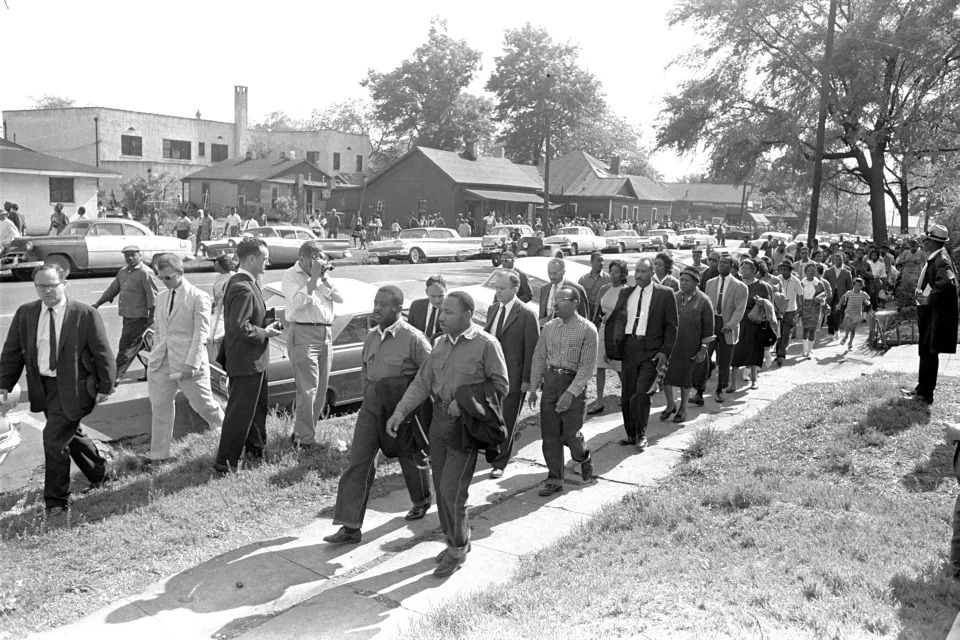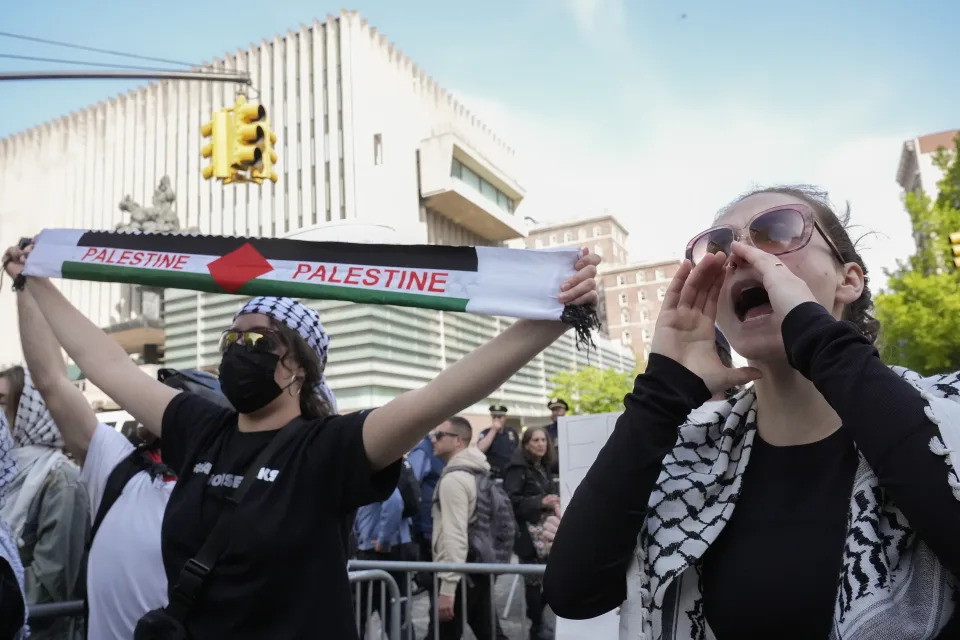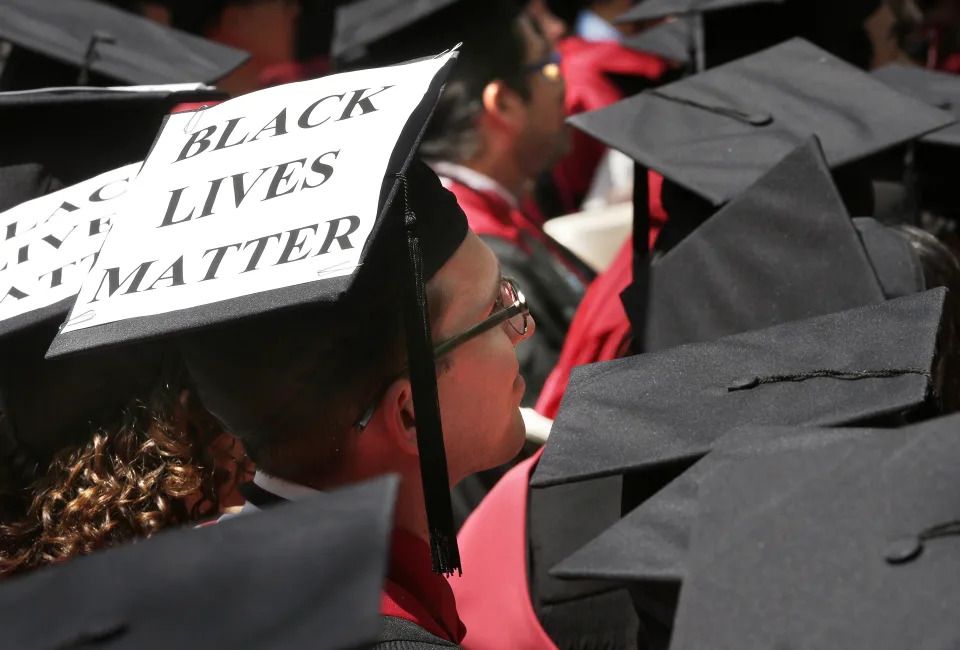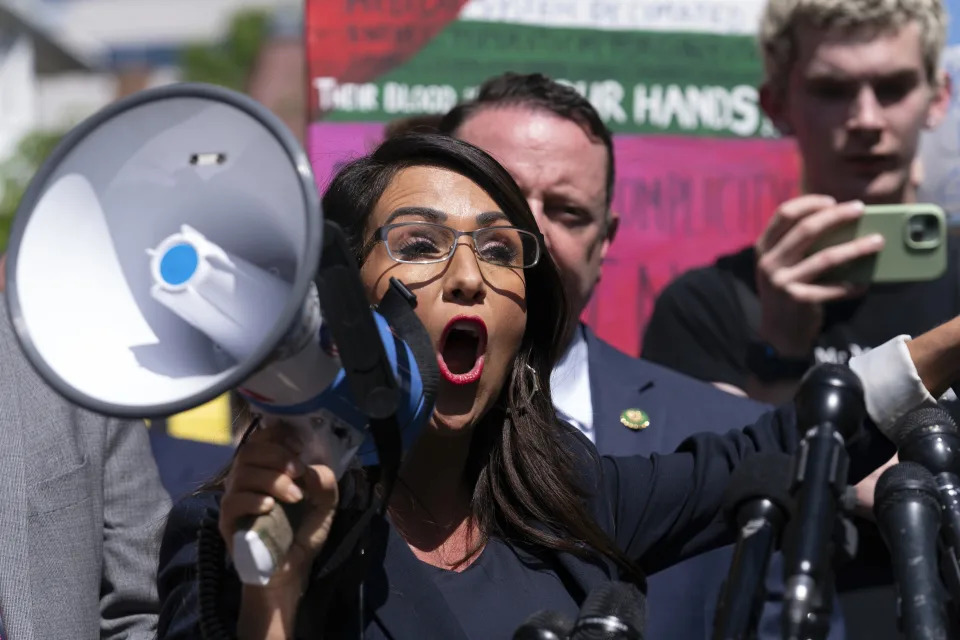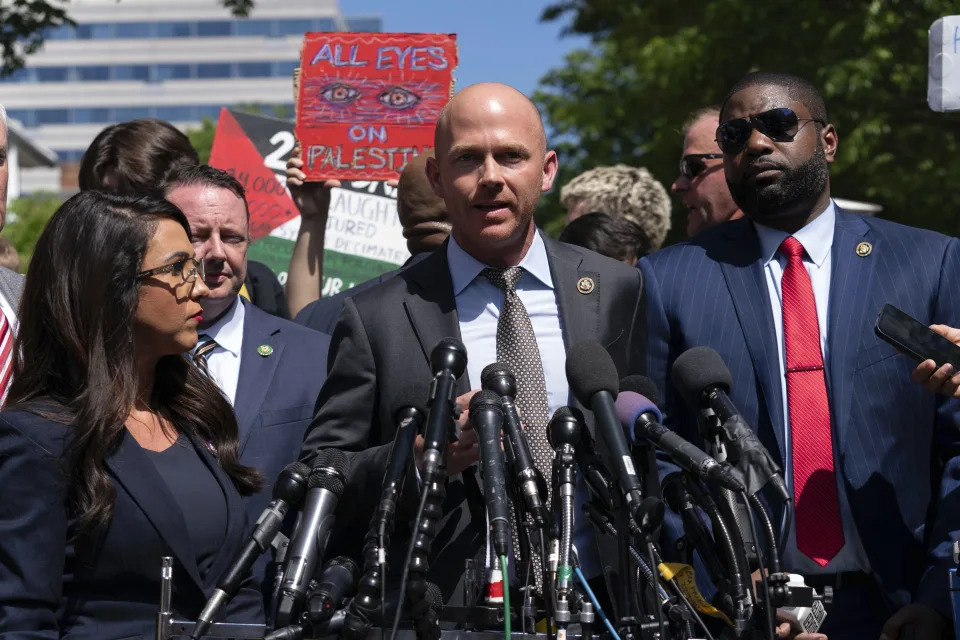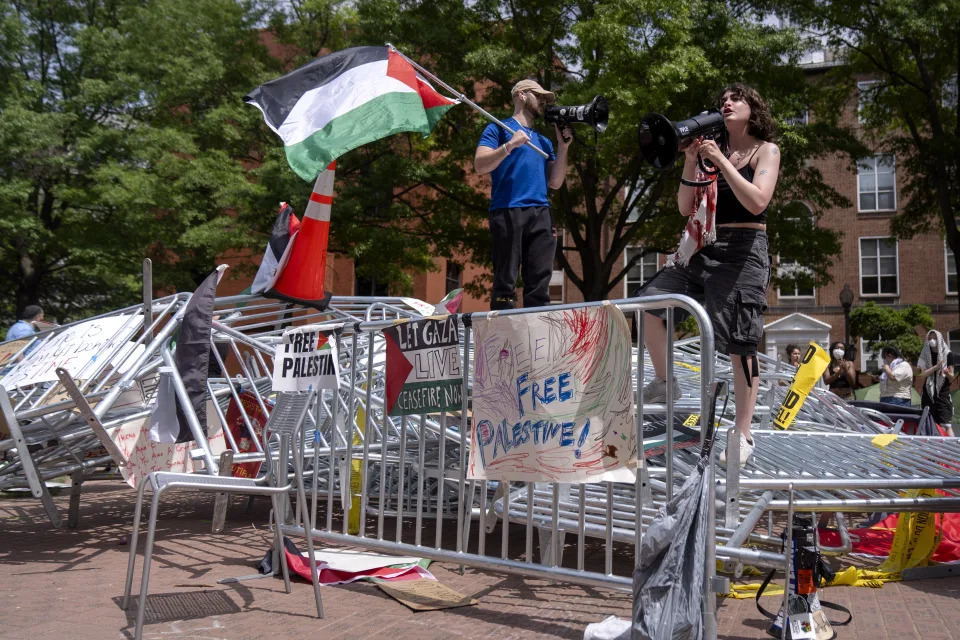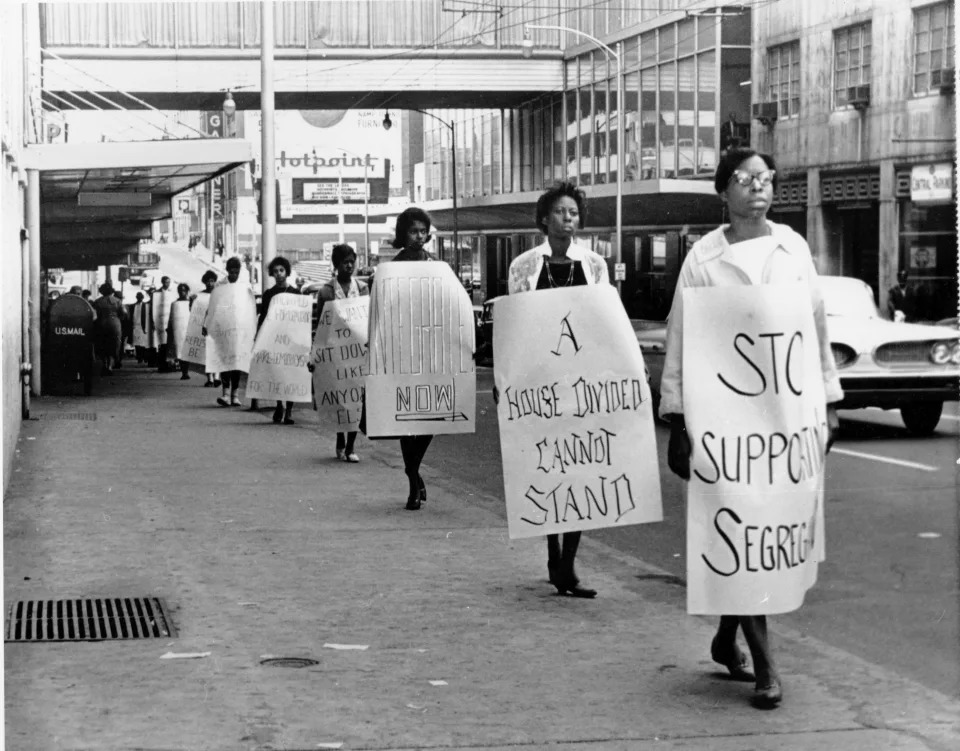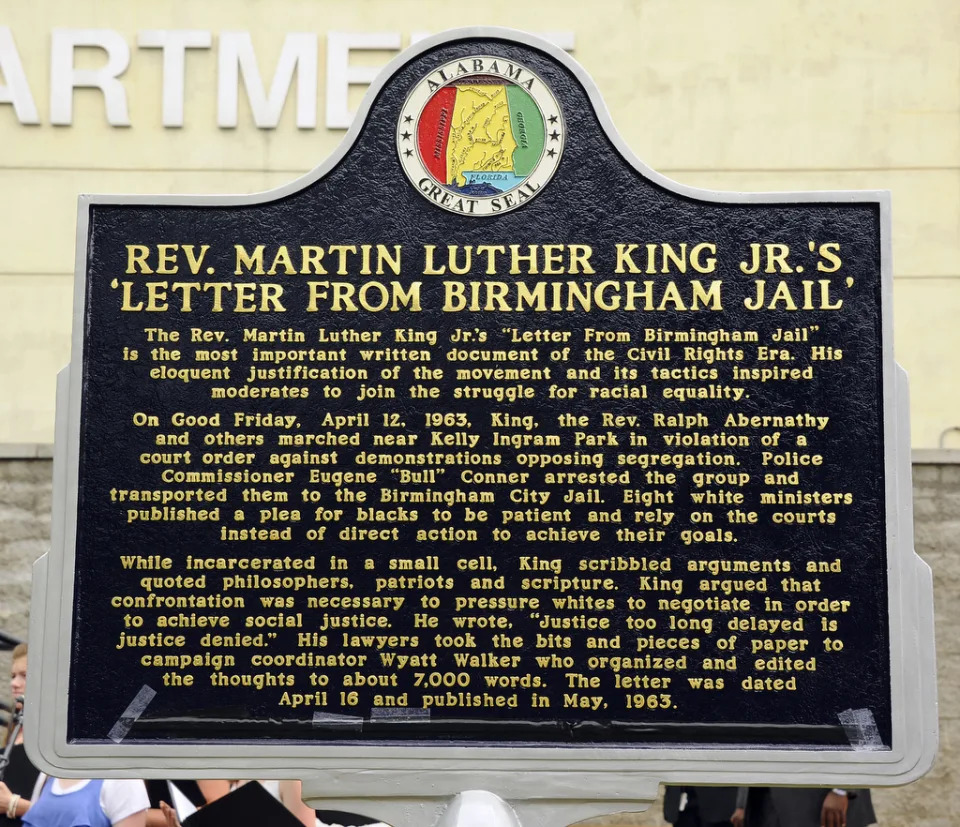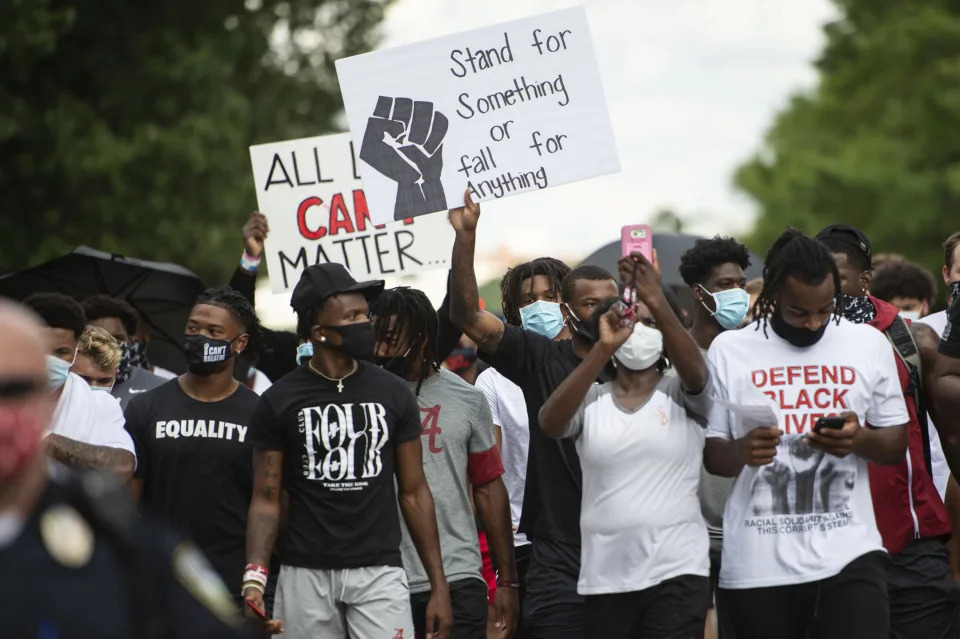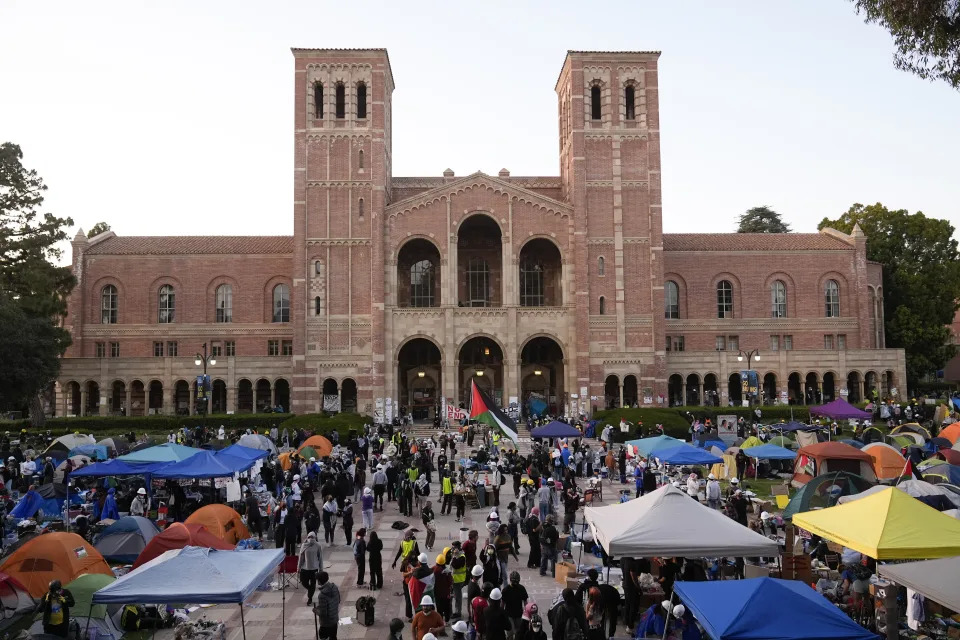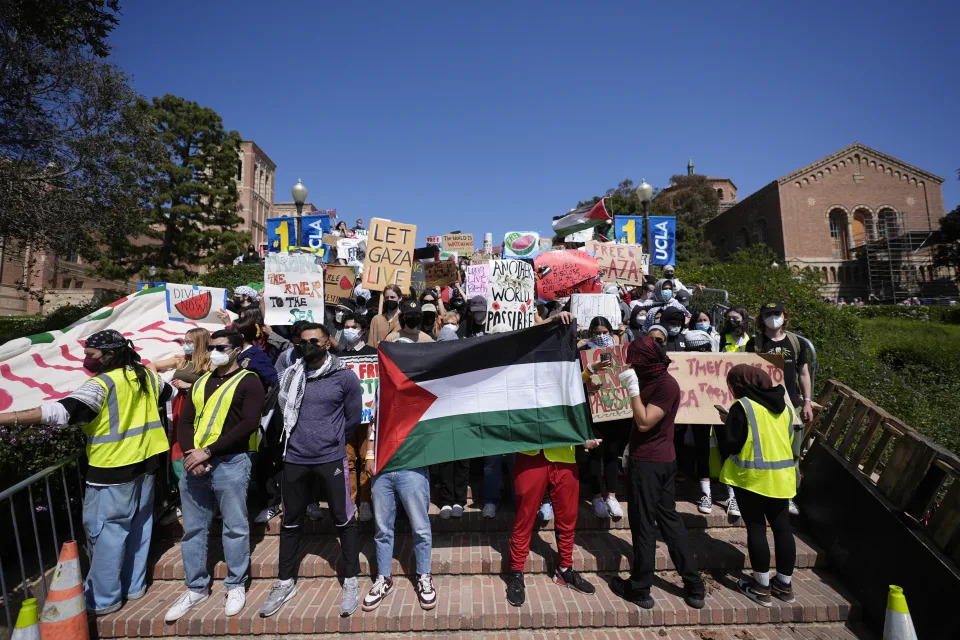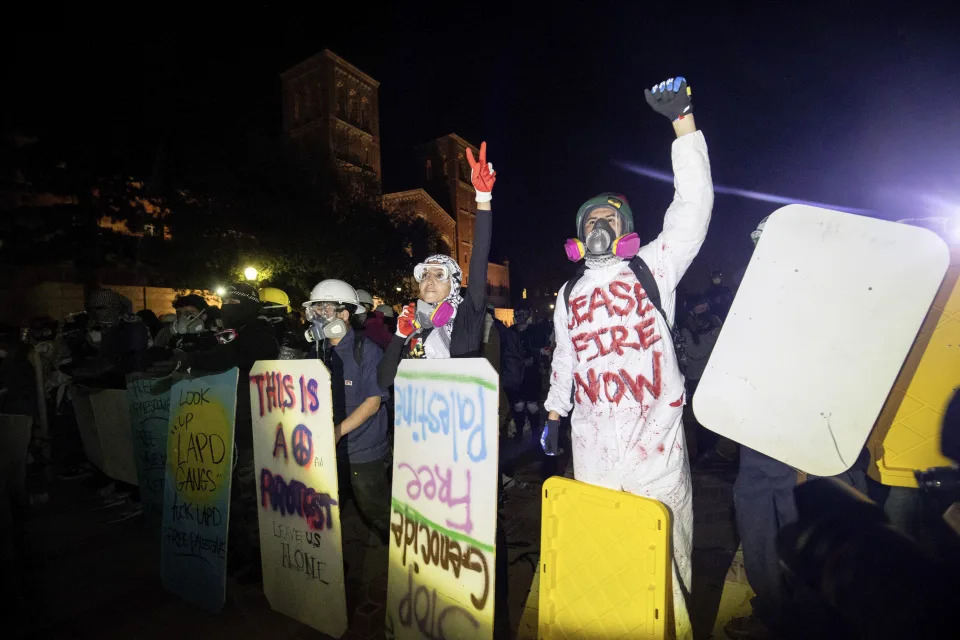Top Indian opposition leader released on bail ‘begs’ voters to fight ‘dictatorship’
NEWS WIRES
Sat, May 11, 2024
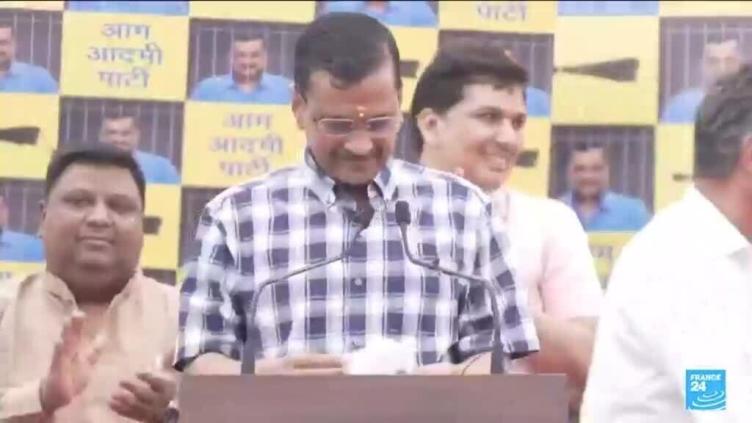
A top opponent of Indian Prime Minister Narendra Modi urged his compatriots to resist "dictatorship" on Saturday, after the country's top court provisionally released him from jail to campaign in national elections.
Arvind Kejriwal, chief minister of the capital Delhi and a key leader in an opposition alliance formed to compete against Modi in the polls, was granted bail on Friday after weeks in custody.
He is among several leaders of the bloc under criminal investigation, with his party describing his arrest as a "political conspiracy" orchestrated by the ruling Bharatiya Janata Party (BJP) to sideline its opponents ahead of the vote.
In a defiant press conference the day after his release, Kejriwal said the outcome of the election would determine whether India remained a democracy.
"I have come to beg 1.4 billion people to save my country," he said. "Save my country from this dictatorship."
Kejriwal also personally accused the prime minister of targeting his opponents with criminal probes.
"Modi has started a very dangerous mission," he said. "Modi will send all opposition leaders to jail."
Kejriwal's government was accused of corruption when it liberalised the sale of liquor in 2021 and gave up a lucrative government stake in the sector.
More than 1,000 cheering supporters greeted him as he walked free from the capital's Tihar Jail on Friday night.
(AFP)
Indian Opposition Leader Hits Out at Modi After Release on Bail
Sidhartha Shukla
Sat, May 11, 2024 at 5:14 a.m. MDT·2 min read
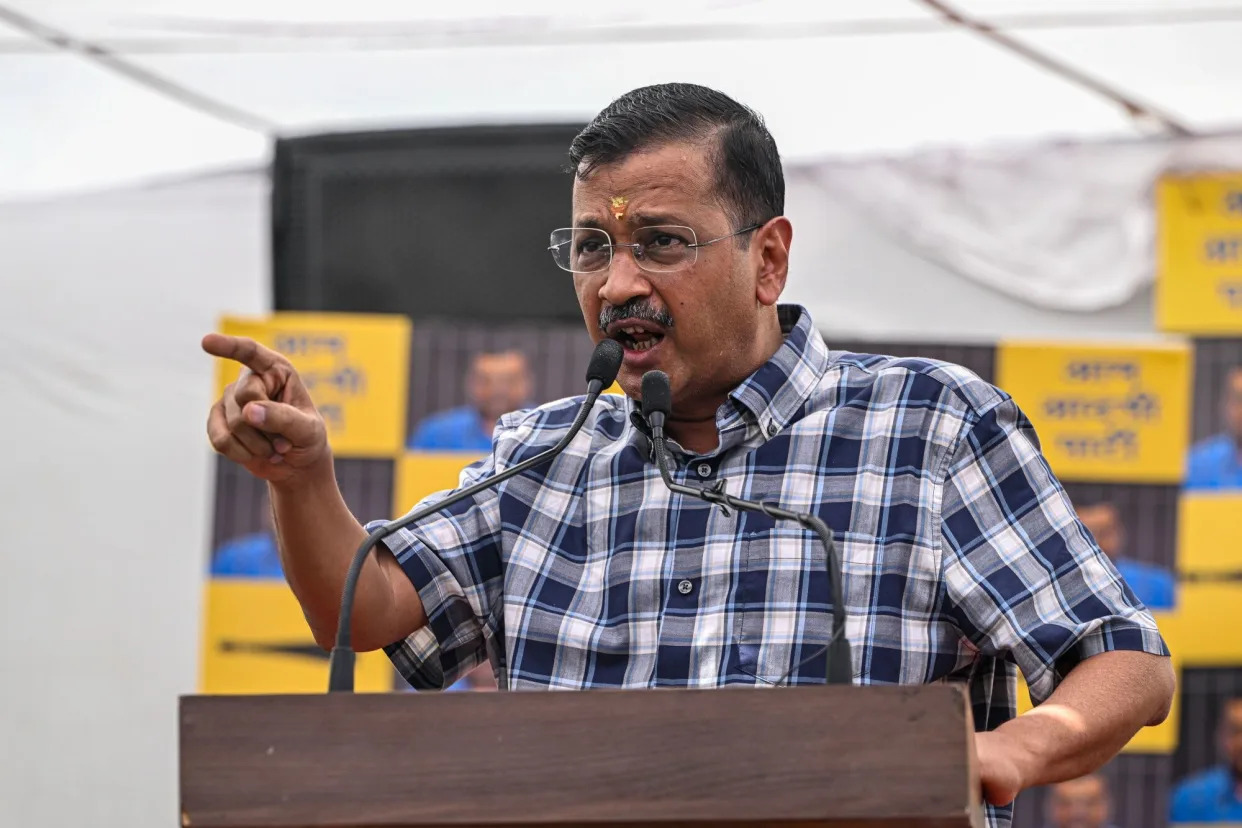
(Bloomberg) -- Indian opposition leader Arvind Kejriwal said Prime Minister Narendra Modi’s ruling party is losing support in ongoing national elections and will struggle to form the next government, lashing out at his rival a day after he was released on interim bail.
Kejriwal said at a rally on Saturday that all opposition leaders risk being sent to jail should Modi’s Bharatiya Janata Party return to power. The New Delhi chief minister was arrested in March on allegations of money laundering, and has been released for a few weeks to allow him to campaign.
“I talked to poll experts and people, BJP is not going to form govt after June 4,” Kejriwal said at the rally in the capital, adding that he believes his Aam Aadmi Party will be part of the central government.
Poor turnout is prompting concerns about voter disengagement in the world’s largest poll, though analysts say it doesn’t necessarily suggest an advantage for either side. Investors said the concerns are weighing on Indian markets, with the country’s main stock index suffering its biggest one-day drop in four months on Thursday over worries that low participation could hurt Modi’s re-election prospects.
Kejriwal, 55, is among several senior leaders of AAP who have been arrested on allegations that the party’s government in the national capital skewed the alcohol pricing in the region in exchange for bribes. AAP has consistently denied the allegations and often termed them as political witch-hunt by the BJP-led government that controls the federal investigative agencies.
Before Kejriwal, the chief minister of Jharkhand state, Hemant Soren, was also arrested by the Directorate of Enforcement.
Read More: In Bid for Survival, India’s Opposition Tries to Work Together
While Modi, 73, is widely expected to win a third five-year term in elections that conclude next month, there has been public discussion on how many terms he will ultimately contest. At an interview recently when asked if he would contest in 2029, Modi said a country shouldn’t be run on the basis of one person alone.
Kejriwal said on Saturday that he believes Modi will retire next year and Union Home Minister Amit Shah, his long time confidant, will be next in line to become prime minister.
Bloomberg Businessweek
India's opposition jubilant as Modi critic Kejriwal gets bail to campaign in elections
Updated Sat, May 11, 2024


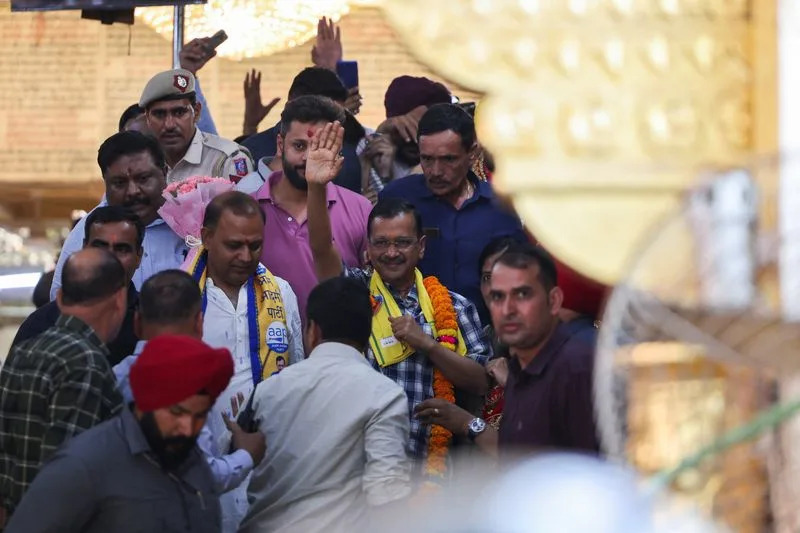
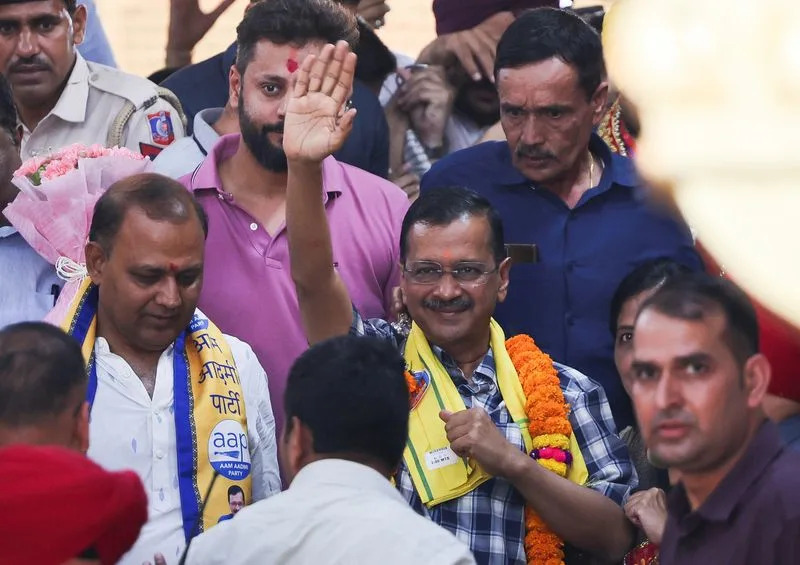
India's opposition jubilant as Modi critic Kejriwal gets bail to campaign in elections
Delhi CM Kejriwal receives temporary bail in a liquor policy case in New Delhi
By Sakshi Dayal and YP Rajesh
NEW DELHI (Reuters) -India's top court gave temporary bail to Delhi Chief Minister Arvind Kejriwal in a graft case on Friday, allowing him to campaign in the ongoing general elections, boosting the opposition alliance of which he is a prominent figure.
The Supreme Court said Kejriwal - a fierce critic of Prime Minister Narendra Modi - would be out on bail until June 1, the last day of the nationwide seven-phase vote, and would have to return to pre-trial detention on June 2.
India began voting on April 19 and elections for more than half of the 543 seats in parliament have now been completed following the third phase of the vote on May 7.
The two areas governed by Kejriwal's Aam Aadmi Party (AAP) - the National Capital Territory that includes New Delhi, and the northern state of Punjab - go to the polls on May 25 and June 1 respectively.
Votes will be counted on June 4 and results are expected to be announced the same day.
"It feels good to be back among you," Kejriwal, dressed in a dark collarless T-shirt, told supporters through the sun-roof of a vehicle soon after being released from Delhi's Tihar jail.
Thousands of AAP supporters had gathered waving the party's yellow and blue flags, setting off firecrackers, shouting slogans and distributing sweets.
"I have only one request for you, we have to come together to save the country from dictatorship," Kejriwal said. "I am fighting with everything I have against this dictatorship. But 1.4 billion people will have to fight dictatorship," he said, referring to India's huge population.
The court had said last week that it may consider granting Kejriwal temporary bail "because of the elections" while it heard an appeal against his arrest, as that hearing could take a while to conclude.
Opposition parties have accused Prime Minister Narendra Modi's government of using investigative agencies to hurt its rivals, which the government denies.
Over the years Kejriwal has accused Modi and his Bharatiya Janata Party (BJP) of damaging democracy, promoting corruption, throttling governance in Delhi, abusing their power and attacking the federal structure of the constitution among other things.
ARRESTED
BJP spokesperson Shazia Ilmi said the party has always respected the verdicts of the highest court.
"Kejriwal will not be able to play the victim card. He can't say that he is being discriminated against, that all the agencies and courts are against him," she told ANI news agency, in which Reuters has a minority stake.
"Secondly, and importantly, he has got interim bail, not freedom. He has to go back to jail on June 2," Ilmi added.
The Enforcement Directorate, India's financial crime-fighting agency, arrested Kejriwal on March 21 in connection with corruption allegations related to the capital territory's liquor policy.
Kejriwal's government and his AAP have denied the allegations. Modi and BJP say the investigating agencies are only doing their job and the government is not influencing them.
Kejriwal has been in pre-trial detention since April 1, and his wife Sunita has stepped in to campaign for his decade-old party which has been hobbled by the detention also of two other senior leaders in the same case.
Members of the INDIA alliance of more than two dozen opposition parties - Modi's main challenger which includes the AAP - said they were pleased that Kejriwal had received bail.
Mamata Banerjee, chief minister of the eastern state of West Bengal and a key INDIA member, said she was "very happy" Kejriwal got bail. "It will be very helpful in the context of the current elections," she posted on X.
Abhishek Manu Singhvi, Kejriwal's lawyer, had argued that Kejriwal was arrested just before the vote to stop him from campaigning against Modi, who opinion polls suggest will win a comfortable majority and secure a rare third straight term.
ED lawyers argued that giving bail to a politician just to campaign risked sending the message that there were different standards for such figures compared with other citizens.
(Reporting by Sakshi Dayal and YP Rajesh; Additional reporting by Arpan Chaturvedi; Editing by Hugh Lawson)
Top Indian opposition leader released on bail by court enabling him to campaign in elections
ASHOK SHARMA
Updated Fri, May 10, 2024
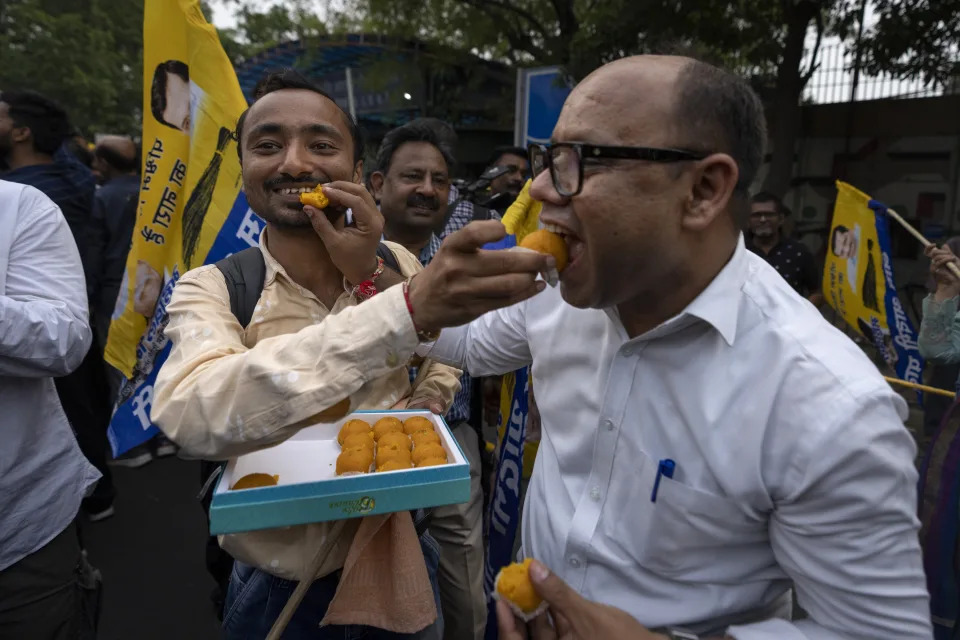
India Politician Bail
Arvind Kejriwal, leader of the Aam Admi Party, or Common Man's Party, left, leaves in a car after a court extended his custody for four more days, in New Delhi, India, March 28, 2024. India's top court on Friday gave interim bail to the top opposition leader who was arrested nearly seven weeks ago.


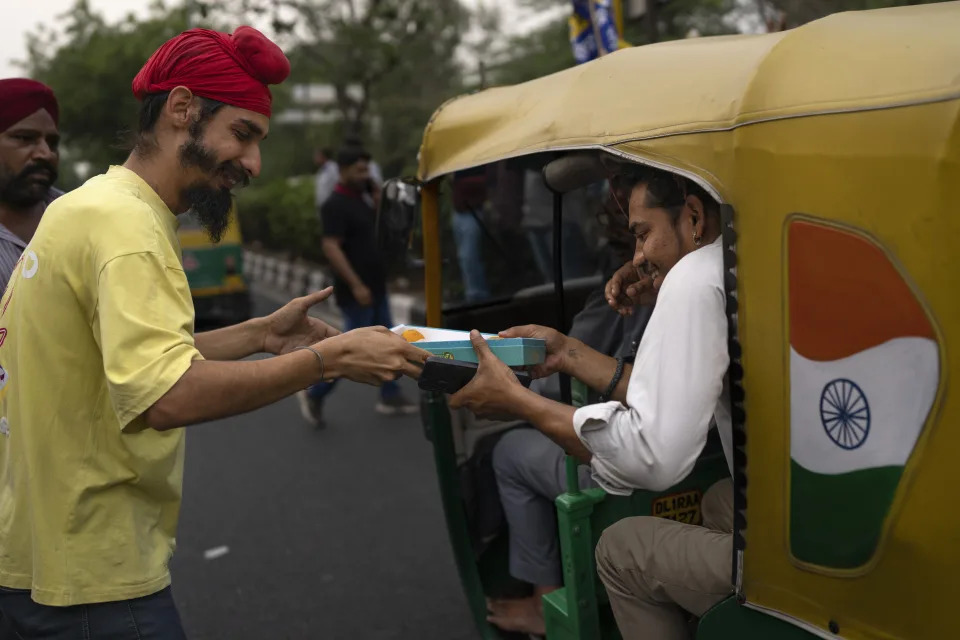
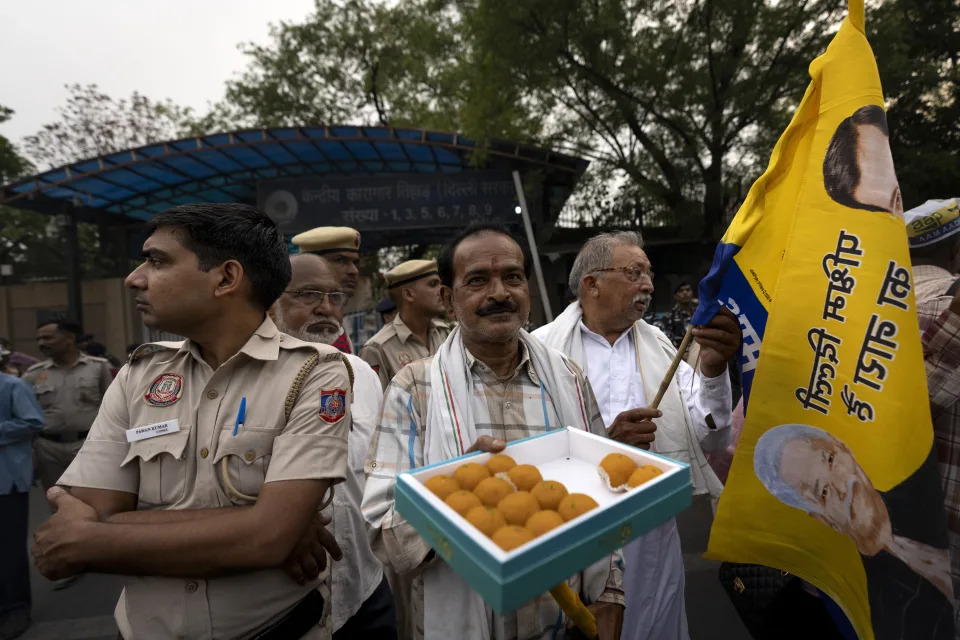

Updated Sat, May 11, 2024




India's opposition jubilant as Modi critic Kejriwal gets bail to campaign in elections
Delhi CM Kejriwal receives temporary bail in a liquor policy case in New Delhi
By Sakshi Dayal and YP Rajesh
NEW DELHI (Reuters) -India's top court gave temporary bail to Delhi Chief Minister Arvind Kejriwal in a graft case on Friday, allowing him to campaign in the ongoing general elections, boosting the opposition alliance of which he is a prominent figure.
The Supreme Court said Kejriwal - a fierce critic of Prime Minister Narendra Modi - would be out on bail until June 1, the last day of the nationwide seven-phase vote, and would have to return to pre-trial detention on June 2.
India began voting on April 19 and elections for more than half of the 543 seats in parliament have now been completed following the third phase of the vote on May 7.
The two areas governed by Kejriwal's Aam Aadmi Party (AAP) - the National Capital Territory that includes New Delhi, and the northern state of Punjab - go to the polls on May 25 and June 1 respectively.
Votes will be counted on June 4 and results are expected to be announced the same day.
"It feels good to be back among you," Kejriwal, dressed in a dark collarless T-shirt, told supporters through the sun-roof of a vehicle soon after being released from Delhi's Tihar jail.
Thousands of AAP supporters had gathered waving the party's yellow and blue flags, setting off firecrackers, shouting slogans and distributing sweets.
"I have only one request for you, we have to come together to save the country from dictatorship," Kejriwal said. "I am fighting with everything I have against this dictatorship. But 1.4 billion people will have to fight dictatorship," he said, referring to India's huge population.
The court had said last week that it may consider granting Kejriwal temporary bail "because of the elections" while it heard an appeal against his arrest, as that hearing could take a while to conclude.
Opposition parties have accused Prime Minister Narendra Modi's government of using investigative agencies to hurt its rivals, which the government denies.
Over the years Kejriwal has accused Modi and his Bharatiya Janata Party (BJP) of damaging democracy, promoting corruption, throttling governance in Delhi, abusing their power and attacking the federal structure of the constitution among other things.
ARRESTED
BJP spokesperson Shazia Ilmi said the party has always respected the verdicts of the highest court.
"Kejriwal will not be able to play the victim card. He can't say that he is being discriminated against, that all the agencies and courts are against him," she told ANI news agency, in which Reuters has a minority stake.
"Secondly, and importantly, he has got interim bail, not freedom. He has to go back to jail on June 2," Ilmi added.
The Enforcement Directorate, India's financial crime-fighting agency, arrested Kejriwal on March 21 in connection with corruption allegations related to the capital territory's liquor policy.
Kejriwal's government and his AAP have denied the allegations. Modi and BJP say the investigating agencies are only doing their job and the government is not influencing them.
Kejriwal has been in pre-trial detention since April 1, and his wife Sunita has stepped in to campaign for his decade-old party which has been hobbled by the detention also of two other senior leaders in the same case.
Members of the INDIA alliance of more than two dozen opposition parties - Modi's main challenger which includes the AAP - said they were pleased that Kejriwal had received bail.
Mamata Banerjee, chief minister of the eastern state of West Bengal and a key INDIA member, said she was "very happy" Kejriwal got bail. "It will be very helpful in the context of the current elections," she posted on X.
Abhishek Manu Singhvi, Kejriwal's lawyer, had argued that Kejriwal was arrested just before the vote to stop him from campaigning against Modi, who opinion polls suggest will win a comfortable majority and secure a rare third straight term.
ED lawyers argued that giving bail to a politician just to campaign risked sending the message that there were different standards for such figures compared with other citizens.
(Reporting by Sakshi Dayal and YP Rajesh; Additional reporting by Arpan Chaturvedi; Editing by Hugh Lawson)
Top Indian opposition leader released on bail by court enabling him to campaign in elections
ASHOK SHARMA
Updated Fri, May 10, 2024

India Politician Bail
Arvind Kejriwal, leader of the Aam Admi Party, or Common Man's Party, left, leaves in a car after a court extended his custody for four more days, in New Delhi, India, March 28, 2024. India's top court on Friday gave interim bail to the top opposition leader who was arrested nearly seven weeks ago.





(AP Photo/Dinesh Joshi, File)
NEW DELHI (AP) — A top Indian opposition leader was freed from jail on interim bail by the Supreme Court on Friday nearly seven weeks after his arrest in a bribery case that opposition parties called a political move by Prime Minister Narendra Modi's government against one of his rivals during a national election.
Arvind Kejriwal, the leader of the Aam Aadmi Party, or Common Man’s Party, is the chief elected official in the city of New Delhi and one of the country’s most influential politicians of the past decade.
The court order enables him to campaign in the country's national election until the voting ends on June 1, Kejriwal's attorney said.
Opposition leaders hailed the court verdict. "It will be very helpful in the context of the current elections,” said Mamata Banerjee, the top elected official of West Bengal state.
However, Manjinder Singh Sirsa, a leader of the ruling party, said the court’s decision did not mean that Kejriwal has been exonerated in the bribery case. He will have to go back to jail on June 2 as pre-trial court proceedings are still taking place.
Supporters waving yellow and blue satin party flags greeted Kejriwal as his car came out of the prison gate hours after the court ruling. ``Long live Kejriwal,” they chanted.
``Long live revolution,” Kejriwal responded as he emerged from the roof of his car and briefly addressed them. His supporters lit firecrackers and danced.
`` I feel very happy to be amongst you. I told you that I would come early. I have one request to make. I seek your cooperation to save the country from dictatorship. That’s my fight,” he said in an attack on Prime Minister Narendra Modi's government for arresting him.
Judges Sanjiv Khanna and Dipankar Datta said in their order that the national election was an important event. They rejected the prosecutors' plea that their decision would put Kejriwal in a beneficial position compared with ordinary citizens.
They did, however, impose some conditions on Kejriwal for granting interim bail. He will not be allowed to visit his office and some decisions he makes as chief minister of New Delhi must be approved by the capital’s governor. Also, he cannot interact with any witnesses in the case, they said.
Kejriwal was arrested by the federal Enforcement Directorate, India’s main financial investigation agency, on March 21. The agency, controlled by Modi’s government, accused his party and ministers of accepting 1 billion rupees ($12 million) in bribes from liquor contractors nearly two years ago. The arrest triggered days of protests by party activists supported by other opposition parties.
Kejriwal, who has remained New Delhi's chief minister, has denied the accusations. His party is part of a broad alliance of opposition parties called INDIA, which is the main challenger to Modi’s governing Bharatiya Janata Party in India's six-week-long general election, which began last month.
Kejriwal's case was the first time that a chief minister in India was arrested while in office. His arrest, which occurred before the start of the election, dominated headlines for weeks.
His attorney, Abhishek Manu Singhvi, said he was a serving chief minister and not a “habitual offender” and deserved to be released to campaign. Kejriwal’s deputy, Manish Sisodia, was also arrested in the case earlier, weakening his party’s campaign in national elections.
The Enforcement Directorate opposed his bail, saying that releasing Kejriwal to campaign would indicate that there were different judicial standards for politicians and other citizens.
"The right to campaign for an election is neither a fundamental right nor a constitutional right and not even a legal right," it said, adding that Kejriwal is not a candidate in these elections.
Kejriwal's party is the main challenger to Modi’s governing BJP in the Indian capital New Delhi and Punjab state where voting will take place on May 25 and June 1 respectively.
The national elections that started on April 19 are due to conclude on June 1. Votes will be counted on June 4.
While the federal agency accused Kejriwal of being a key conspirator in the liquor bribery case, the opposition parties said the government was misusing federal investigation agencies to harass and weaken its political opponents. They pointed to a series of raids, arrests and corruption investigations of key opposition figures.
Kejriwal called his arrest a “political conspiracy” to prevent him from campaigning, and accused the Enforcement Directorate of “manipulating investigative agencies for political motives.”
Modi’s party denies using law enforcement agencies to target the opposition and says the agencies act independently.
Kejriwal, a former civil servant, launched the Aam Aadmi Party in 2012. He promised to rid the Indian political system and governance of corruption and inefficiency.
The party’s symbol — a broom — and its promise to sweep the administration of graft struck a chord with Delhi residents, fed up with runaway inflation and slow economic growth.
——
NEW DELHI (AP) — A top Indian opposition leader was freed from jail on interim bail by the Supreme Court on Friday nearly seven weeks after his arrest in a bribery case that opposition parties called a political move by Prime Minister Narendra Modi's government against one of his rivals during a national election.
Arvind Kejriwal, the leader of the Aam Aadmi Party, or Common Man’s Party, is the chief elected official in the city of New Delhi and one of the country’s most influential politicians of the past decade.
The court order enables him to campaign in the country's national election until the voting ends on June 1, Kejriwal's attorney said.
Opposition leaders hailed the court verdict. "It will be very helpful in the context of the current elections,” said Mamata Banerjee, the top elected official of West Bengal state.
However, Manjinder Singh Sirsa, a leader of the ruling party, said the court’s decision did not mean that Kejriwal has been exonerated in the bribery case. He will have to go back to jail on June 2 as pre-trial court proceedings are still taking place.
Supporters waving yellow and blue satin party flags greeted Kejriwal as his car came out of the prison gate hours after the court ruling. ``Long live Kejriwal,” they chanted.
``Long live revolution,” Kejriwal responded as he emerged from the roof of his car and briefly addressed them. His supporters lit firecrackers and danced.
`` I feel very happy to be amongst you. I told you that I would come early. I have one request to make. I seek your cooperation to save the country from dictatorship. That’s my fight,” he said in an attack on Prime Minister Narendra Modi's government for arresting him.
Judges Sanjiv Khanna and Dipankar Datta said in their order that the national election was an important event. They rejected the prosecutors' plea that their decision would put Kejriwal in a beneficial position compared with ordinary citizens.
They did, however, impose some conditions on Kejriwal for granting interim bail. He will not be allowed to visit his office and some decisions he makes as chief minister of New Delhi must be approved by the capital’s governor. Also, he cannot interact with any witnesses in the case, they said.
Kejriwal was arrested by the federal Enforcement Directorate, India’s main financial investigation agency, on March 21. The agency, controlled by Modi’s government, accused his party and ministers of accepting 1 billion rupees ($12 million) in bribes from liquor contractors nearly two years ago. The arrest triggered days of protests by party activists supported by other opposition parties.
Kejriwal, who has remained New Delhi's chief minister, has denied the accusations. His party is part of a broad alliance of opposition parties called INDIA, which is the main challenger to Modi’s governing Bharatiya Janata Party in India's six-week-long general election, which began last month.
Kejriwal's case was the first time that a chief minister in India was arrested while in office. His arrest, which occurred before the start of the election, dominated headlines for weeks.
His attorney, Abhishek Manu Singhvi, said he was a serving chief minister and not a “habitual offender” and deserved to be released to campaign. Kejriwal’s deputy, Manish Sisodia, was also arrested in the case earlier, weakening his party’s campaign in national elections.
The Enforcement Directorate opposed his bail, saying that releasing Kejriwal to campaign would indicate that there were different judicial standards for politicians and other citizens.
"The right to campaign for an election is neither a fundamental right nor a constitutional right and not even a legal right," it said, adding that Kejriwal is not a candidate in these elections.
Kejriwal's party is the main challenger to Modi’s governing BJP in the Indian capital New Delhi and Punjab state where voting will take place on May 25 and June 1 respectively.
The national elections that started on April 19 are due to conclude on June 1. Votes will be counted on June 4.
While the federal agency accused Kejriwal of being a key conspirator in the liquor bribery case, the opposition parties said the government was misusing federal investigation agencies to harass and weaken its political opponents. They pointed to a series of raids, arrests and corruption investigations of key opposition figures.
Kejriwal called his arrest a “political conspiracy” to prevent him from campaigning, and accused the Enforcement Directorate of “manipulating investigative agencies for political motives.”
Modi’s party denies using law enforcement agencies to target the opposition and says the agencies act independently.
Kejriwal, a former civil servant, launched the Aam Aadmi Party in 2012. He promised to rid the Indian political system and governance of corruption and inefficiency.
The party’s symbol — a broom — and its promise to sweep the administration of graft struck a chord with Delhi residents, fed up with runaway inflation and slow economic growth.
——

